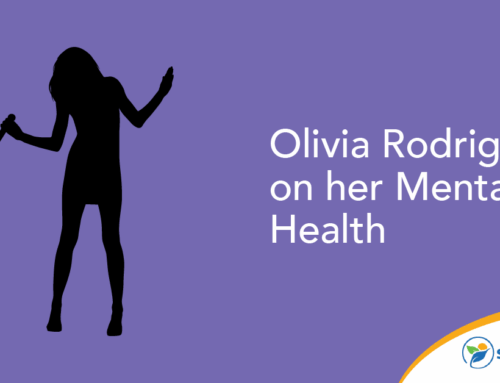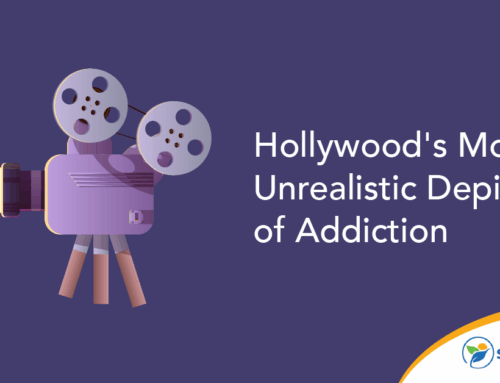Many kids grow up dreaming of becoming rich and famous. For Britney Spears, stardom came with intense media scrutiny and, controversially, led to her being placed under a conservatorship that took away her freedom. What happened to Britney Spears raises important questions about mental health, autonomy, and the toll of relentless fame.
Britney Spears’ Rise to Fame
Britney Jean Spears was born on December 2, 1981, in a small town in Mississippi. As a child star, she appeared in talent competitions such as Star Search. She got her first break starring in The All-New Mickey Mouse Club alongside other celebrities of her generation, including Christina Aguilera, Ryan Gosling, and Keri Russell. At the age of 17, she released her debut single, Baby One More Time, which quickly turned her into a global phenomenon. Her first two albums sold tens of millions of copies, and by the early 2000s, Spears had become a household name. To this day, Spears remains one of the most influential pop artists on the planet.
Her meteoric rise included global tours, multiplatinum albums and widespread recognition. At a time when the internet and social media platforms were in their infancy, Spears was the most reported-on and talked-about celebrity. However, that hard-to-imagine level of fame also attracted controversy and harsh criticism.
Media Scrutiny and Mental Health Speculation
Spears’ talent and iconic performances may have turned her into a pop star, but they also attracted substantially invasive tabloid coverage. It didn’t take long for the conversation to shift from her professional achievements to her lifestyle. Every step she took outside her home was captured on film and photographed.
All aspects of the singer’s personal life, including her dating life, breakups, marriage, pregnancies, and eventual divorce, were scrutinized by the press. Unscrupulous paparazzi followed her around constantly, while gossip magazines published daily articles questioning Spears’ mental state and accusing her of being an unfit mother. During the early 2000s, each day seemed to bring a sensationalized headline about the singer.
The relentless attention peaked in 2007 when Spears had a highly publicized breakdown, culminating in her shaving her head and confronting paparazzi aggressively. In the late 2000s, the stigma surrounding mental health issues was significantly greater. Rather than acknowledging how constant harassment from the paparazzi could be worsening Spears’ problems, the media portrayed her struggles as a personal failing.
What Happened to Britney Spears?
Continuous exposure to media scrutiny can significantly exacerbate mental health issues. Britney Spears’ very public struggles culminated in her father, Jamie Spears, petitioning the courts for a legal conservatorship in 2008, which granted him complete control over the singer’s life, finances, and career. The measure was intended to be temporary, but it lasted for 13 years.
A conservatorship is a legal structure in which a court appoints an individual or entity to manage the affairs of an individual deemed incapable. These types of arrangements are typically used for older adults or individuals with severe cognitive impairments. Britney Spears’ 13-year conservatorship sparked widespread debate because, unlike typical cases, she continued to work and perform. During her conservatorship, she released albums, toured globally, and fulfilled a long-term Las Vegas residency, all while being declared legally unfit to make basic life decisions.
For years, this arrangement had remained relatively unnoticed by the public until the #FreeBritney movement began in 2019. After significant public support and legal battles, the conservatorship was officially terminated in November 2021. In her memoir, Spears described feeling controlled, recalling how others dictated every decision, including career moves, personal relationships, and reproductive choices. She describes being denied the smallest of pleasures, such as drinking coffee or having her nails done.
The memoir also notes the lack of privacy she faced under her father’s control and describes disturbing moments, such as when he declared himself to be Britney Spears. Bipolar disorder and even dementia were among the mental health diagnoses the artist received during her time in the conservatorship. Considering how little agency Spears had over the care she was receiving, it’s unclear whether she was suffering from any of those conditions.
Her situation exposed underlying systemic issues that can strip individuals of autonomy under the guise of protection. Power imbalances and inadequate oversight can lead to abuse, particularly in cases where the conservatee lacks legal recourse.
The Role of Stigma in Celebrity Mental Health
The stigma surrounding mental health continues to impact public perception. Despite recent progress, mental illness is still misunderstood, especially when famous individuals are involved. The National Institute of Mental Health reports that approximately 23% of Americans deal with mental health conditions annually, yet only about half seek out treatment, partially due to fear or perception. Many still view mental illness as something an individual can overcome through sheer willpower.
Stigma significantly shapes how society views and discusses celebrity mental health. Famous individuals, despite their visibility, may find it challenging to open up about their struggles out of fear of being judged by the public. Even celebrities who are open about their mental challenges risk public scrutiny and in some cases, even their careers.
Why Honest, Empathetic Discourse Matters
Public discourse often lacks empathy, portraying mental health as a spectacle or a subject of shame. Spears’ situation illustrates the damaging effects of misinformation. Unrelenting media scrutiny may have negatively contributed to Spears’ challenges.
Mental health awareness has evolved since 2007, but efforts to normalize seeking treatment are still needed. Conditions such as bipolar disorder, depression and anxiety don’t usually require a restrictive conservatorship. The media’s exaggerated portrayal of Britney Spears’ mental health struggles served as a justification for how she was treated.
Spears’ case has led to a change in how the media treats celebrities. It also opened up conversations about conservatorships as a whole and the potential for abuse. When public figures share their experiences, they make it easier for others to seek help and speak out about their own struggles.
When You’re Feeling Overwhelmed
Mental health challenges don’t just affect celebrities. If you need support, Sunlight Recovery offers personalized treatment plans to help you reclaim your well-being. Don’t hesitate to contact us today. We’re here to support your journey with empathy, compassion, and professionalism.







